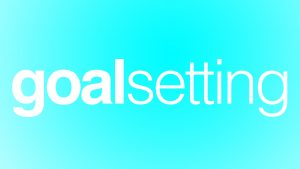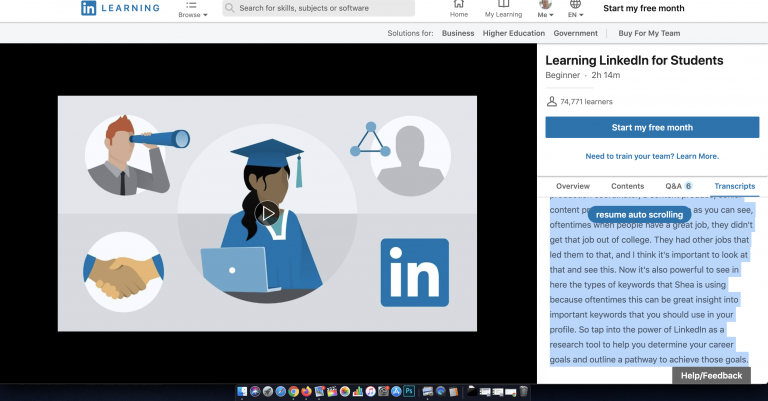Full Show
Highlight- Go Local. Find Internships.
Show Notes
Mike connected with a local engineering business that builds radio systems and test equipment for the US Navy just out of high school, before he went to college and learned that he enjoyed the work they did there. While at Rutgers he found he did not benefit from large classes. The classes were more broad concept and not fitting with what he wanted to do, based on his experience at the engineering firm. He chose to take a more direct path to his career.
Mike’s dad knows Hank Owen, the company owner, so Mike connected with Hank. Mike would help with testing equipment and doing things in the office. After 3 semesters at Rutgers and staying in touch with Hank, Mike decided that he wasn’t learning what he needed to learn at Rutgers to continue in the field with Hank, so Mike took some classes at the local community college closer to the work he was doing in computer science.
Learning things on the job happens so much faster, especially when you love what you are doing. He was solving problems on the job and those skills would come up in class and he already had a strong understanding of the skill.
14-18 year olds and parents: getting family involved in your career discussion and connecting with local companies to get internships as early as possible, as soon as you are curious about it, to see if it’s a fit, learning what you want and what you don’t want, is a great opportunity.
Mike uses LinkedIn and Slack groups to stay connected and network with peers and clients for university and business projects. The engineering companies in his network pass contract work around to each other.
It was easy to get lost in the crowd at the large university. Not going to class or making personal connections with professors and other students was part of the reason Mike changed paths.
Personal and professional connections and real experiences are key to growth.
Claritydojo.com has free courses to help make connections. It includes Research Tools, Email and Question Templates to help make connections and conversations easy.
Career Clarity Course Questions
What would you recommend for training?
Find someone local who does it, ask to shadow. Show an interest, say, “I want to come in and pick up anything.” Get around them and learn what they are doing.
What is the best way to find people who do what you do?
Find someone local, ask parents, family, friends, teachers or everyone posts business information somewhere online, use Google and connect. “Oh hey you’re in my town, or the next town over. I’m interested in what you do. Can I come in?”
What age do you feel like you were ready to make that call? Could you have done it earlier?
Mike didn’t have any experience, interested in computers, couldn’t write any code. No excuses. Just go start. He could have started earlier. 4 sophomores and juniors interned at his company this past summer.
Sophomore year is the sweet spot. It’s a tough age. Maturity and future planning is challenging and easy not to do. If you are curious, use it. Leverage the curios energy to 1. talk to your family, “I’m going to go look this up. Is it alright if I go call somebody who does this thing?” and 2. DO IT!
What resources do you recommend? sites, books, podcasts?
Mike looks at other people’s work on projects he’s working on. Github, Stackoverflow.com. Threaded forum searches that upvote the truth.
Are there any tools or skills you recommend I acquire?
Linux. It may be undervalued in computer science programs. The engineering world is using it. Also Python. Easy enough to use, don’t have to fight the language or take a ton of it to make something useful.
Is there anything you would recommend me to do? Maybe a shortcut?
If you are interested, try projects on your own. Break old machines and try to get them working. Tutorials are everywhere online. If you want to do it forever or for the next 20-30 years, you should like it enough that you want to look at it once in a while in your spare time.
Long term commitment is a mindset. Always curious feels like a calling, a vocation. When you commit to the curiosity that never goes away and commit to 20-30 year increments, that’s important.
Is there anything you would recommend me not to do?
Online coding bootcamp vs 4 year degree. Be careful. Thoroughly research training programs before you commit. Talk to people who have taken the course.
Brian discusses 67 Steps Tai Lopez. Crazy value, definitely recommend.
What’s your experience with scholarships/ financing college tuition?
Submitted a local scholarship application, nothing came of it. Later decisions for college were financially motivated. After first university, spent time at county college and transferred to university.
Best networking tip for college.
There are a lot of resources at the university. Usually through the department. Mike worked on projects at the university with industry professionals. If you go into the department and ask for work and industry connections, they have them. Mike worked as a paid intern while earning college credit.
Worst college mistake.
Handed in a blank exam. Mike thought he could learn it on his own and didn’t attend classes.
Always go to class. Talk to your professors, introduce yourself the first day of class. If a course is tanking, sometimes a different professor, even a different time of day can be a game changer.
Gold nugget: There are a lot of things you can ask for from college professors. Some professors will let you sit in on other sections they teach. Ask for points back on tests if you have a compelling reason. Ask for extra help. Ask to retake exams. If you are engaged, show you want to learn, and they can see that you get the benefit of the doubt and more opportunities.
What is the toughest part about what you do?
Sometimes walking away from something that you have been working on all week can be obsessive. Sometimes the standard, the problem is hard.
Mental trigger: Anytime you feel uncomfortable, or hesitant about making the call or sending the email to connect with an important person, click the button as soon as you have the feeling.
Engineers who work well together keep working together. They know who to call.
Let me remind you that I have a row of electric buttons in my office. All I have to do is press one of them to call the person who can answer any question on any subject I wish to know, relative to the business at hand. I take care of the business, they take care of the questions. Now would you be so good as to explain why, just to answer your questions, I should have a brain stuffed with general culture, when I am surrounded by employees who can supply any information I might want to know?
Henry Ford
Best career success.
Delivered a system, full push for the deadline, weekend work because he wanted to solve a problem. First time delivering a product version of a concept the company has been working on for 10 years.
Worst career mistake.
Shipped the original software with a product and the backup image was corrupt so he had to rebuild the software from scratch. It’s important to have a data backup plan and schedule it.
How has the failure, or apparent failure set you up for later success? Do you have a favorite failure of yours?
The mistake mentioned before, losing the software and having to start from scratch, because it proved they could rebuild and ship the product.
What advice would you give a smart driven high school or college student about to enter the college world or real world? What advice should they ignore?
Be stupid early. Don’t be afraid to ask for help and let people know that you don’t know. It’s not ok to wait and act as if you know and then not be able to deliver.
What are bad recommendations you hear in your profession or area of expertise?
Specializing or being an expert in only one aspect of hardware or software, only using one tool, one way. Guy with a hammer, everything looks like a nail. It often takes a wider skillset and toolset to solve complicated problems.
What would you say to someone who aspires to have a career like yours?
Find someone who is doing what you want to do.





